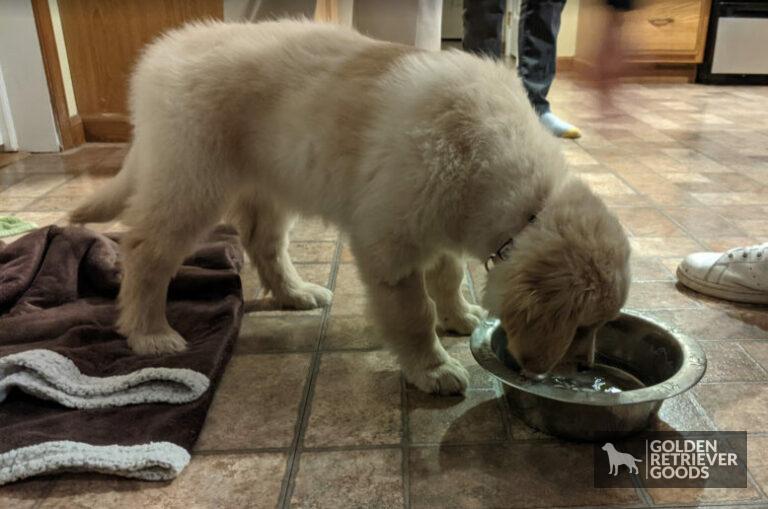
Can Golden Retrievers Free Feed?
Can golden retrievers free feed? It’s a question that many dog owners may ponder as they seek the best feeding practices for their beloved pets….
Welcome to our comprehensive guide on the diet and nutrition for Golden Retrievers! As a proud owner or prospective adopter of this lovable breed, it’s crucial to understand their dietary needs to ensure their optimum health and well-being. This post category aims to provide you with a wealth of information on how to nourish your Golden Retriever with a well-balanced diet that promotes vitality and longevity.
Golden Retrievers are known for their friendly and energetic nature, making them a popular choice among dog lovers. To keep them in tip-top shape, it’s essential to provide them with the right amount of nutrients, tailored to their age, size, and activity level.
General Golden Retriever Diet Information
- Balanced Nutrition: A well-balanced diet for Golden Retrievers should include high-quality proteins, carbohydrates, fats, vitamins, and minerals. Proteins are vital for muscle development, while carbohydrates provide energy. Fats support healthy skin and coat, and vitamins and minerals are necessary for overall well-being.
- Life Stage and Activity Level: Your Golden Retriever’s diet should be adjusted according to their age and activity level. Puppies require more calories and nutrients for growth, while senior dogs need a diet that supports their aging bodies. Active dogs will also need more calories compared to their less active counterparts.
- Portion Control: Golden Retrievers are prone to obesity, so it’s important to monitor their food intake and maintain portion control. Use feeding guidelines on pet food packaging as a starting point, and consult your veterinarian for personalized recommendations.
- Commercial vs. Homemade Diets: Many high-quality commercial dog foods are formulated to meet the nutritional needs of Golden Retrievers. Alternatively, some owners prefer to prepare homemade meals for their pets. If you choose this route, it’s essential to consult a veterinarian or canine nutrition expert to ensure the meals are balanced and complete.
- Food Allergies: Golden Retrievers can develop food allergies or sensitivities. If you notice symptoms like itching, vomiting, or diarrhea, consult your veterinarian to identify the cause and adjust your dog’s diet accordingly.
- Treats and Supplements: Treats should be given in moderation, and it’s best to choose healthy options like fruits and vegetables. Supplements may be necessary in certain situations, but always consult your veterinarian before introducing them to your dog’s diet.
In this blog category, you’ll find a collection of articles addressing various aspects of a Golden Retriever’s diet, from understanding their specific nutritional needs to exploring different food options, managing food allergies, and more. We hope this information will help you make informed decisions and provide your beloved Golden Retriever with the healthiest, most delicious meals possible!
We want to remind our readers that the articles or content found on goldenretrievergoods.com do not constitute nor replace professional veterinary advice, diagnosis, or treatment. The information provided on our website is purely educational and informational, and should not be used as a substitute for advice from a licensed veterinarian.

